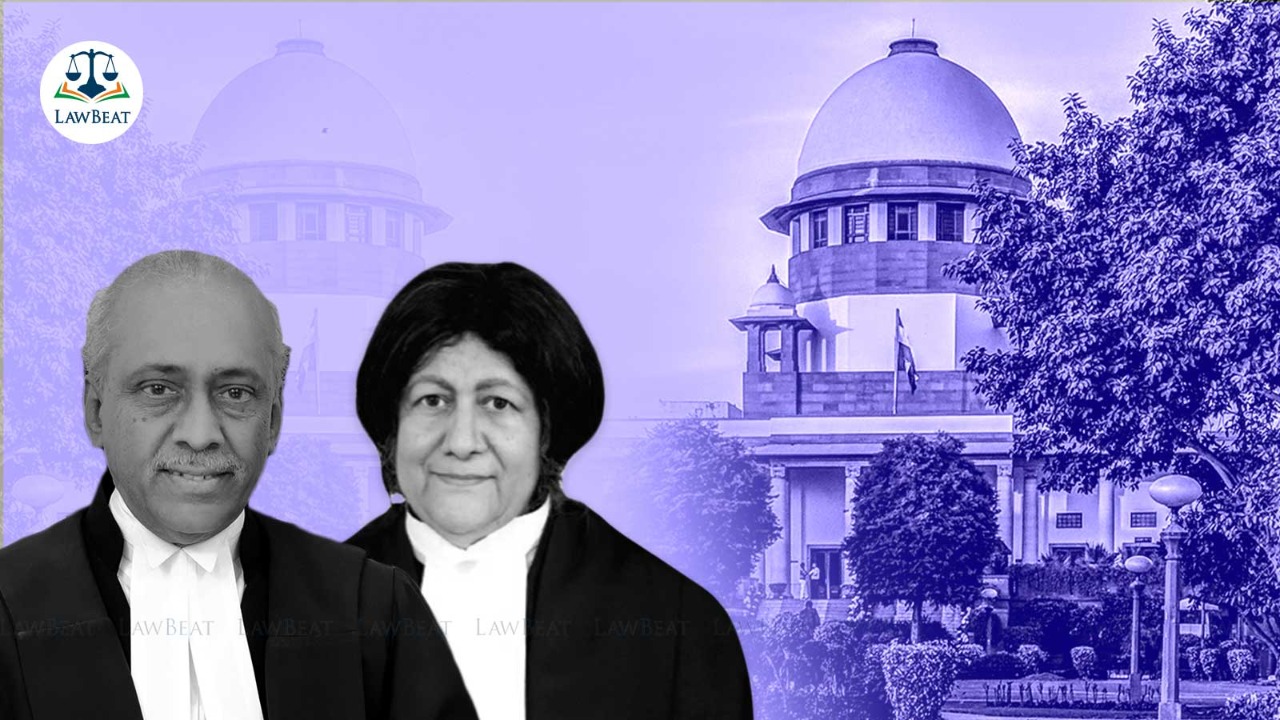Financial criteria for compassionate appointment valid and lawful, has to be construed strictly: Top Court

Consideration for compassionate appointment must, therefore, be strictly in accordance with the prevalent rules for compassionate appointment applicable to the deceased/prematurely retired employee, top court said.
The Supreme Court has held that rules which provide for financial criteria for appointment on compassionate grounds are valid and lawful rules which have to be construed strictly.
Otherwise, the quota reserved for compassionate appointments would be filled up excluding others who might be in greater and/or far more acute financial distress, a bench of Justice Indira Banerjee and Justice V Ramasubramaniam held.
In this regard, the division bench further relied on the judgment in the case of State Bank of India vs. Raj Kumar wherein top court held that the claim for compassionate appointment is traceable only to the scheme framed by the employer for such employment, and there is no right whatsoever outside such scheme and there could be no automatic appointment merely on application.
In the case before Court, Central Bank had challenged the Bombay High Court's order directing it to consider the case of one Nitin for compassionate appointment as per his seniority in filing the application for compassionate appointment.
Nitin's father, YP Arawade, who was working as Special Assistant in the Kolgaon Branch of the Bank in Ahmednagar District, Maharashtra applied for voluntary premature retirement from service in 2015 on the ground of medical incapacitation.
As per the Banks' ‘Scheme for Payment of Ex-Gratia Lump Sum Amount in lieu of Appointment on Compassionate Grounds’, a payment of an ex-gratia lump sum amount would be made to employees seeking premature retirement on the ground of medical incapacitation.
Employees of the Bank seeking premature retirement due to medical incapacitation, before attaining the age of 55 years, were to be entitled to the benefit of the scheme, subject to the condition that the total monthly income of the family arrived at, as per the calculation prescribed, was less than 60% of the last drawn gross salary of the employee.
Later, in 2014, Bank notified “The Scheme For Appointment on Compassionate Grounds or Payment of Lumpsum Ex-Gratia Amount”.
In July 2015, Nitin applied for compassionate appointment wherein he suppressed the fact that he was employed in the ICICI Bank and resigned almost eight months after he submitted his application.
A Four Member Committee constituted under the Compassionate Appointment Scheme rejected Nitin's proposal on the ground that the family of the retired employee was not indigent as the family had an estimated monthly income of Rs.36,773/-, which was more than 60% of the last drawn gross salary of Rs.55,978/- of the retired employee.
The top court further found that the monthly income of the family of the retired employee had been estimated without taking into account the monthly salary which his son Nitin had been receiving from ICICI Bank at the time when his father prematurely retired from service on the ground of medical incapacitation.
Thus, while allowing the appeal, the top court held that the division bench patently erred in arriving at the finding that whether the family was indigent or not could not be a ground for refusing compassionate appointment to a candidate who was otherwise eligible for appointment under the Compassionate Appointment Scheme.
"It is well settled that compassionate appointment is an exception to the rule of equality, which enables the dependent family members of a medically incapacitated employee who has no option, but to retire, or a deceased employee, to tide over the immediate crisis caused by the incapacitation or death of the breadwinner. Compassionate Appointment excludes equally or more meritorious candidates, much in need of a job, from the zone of consideration. Consideration for compassionate appointment must, therefore, be strictly in accordance with the prevalent rules for compassionate appointment applicable to the deceased/prematurely retired employee", further said the bench.
Case Title: Central Bank of India vs. Nitin
